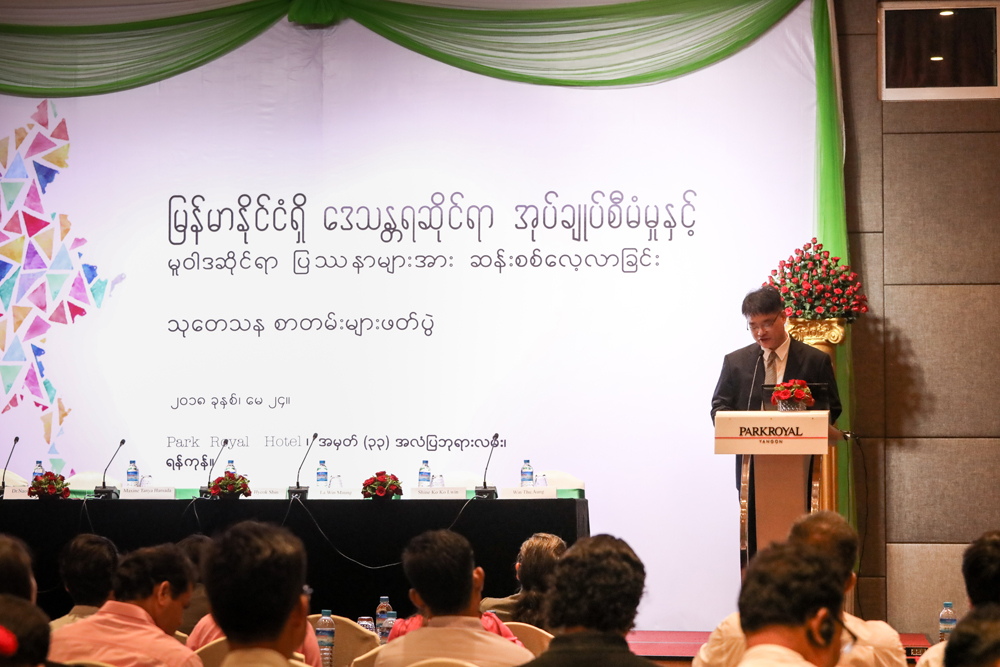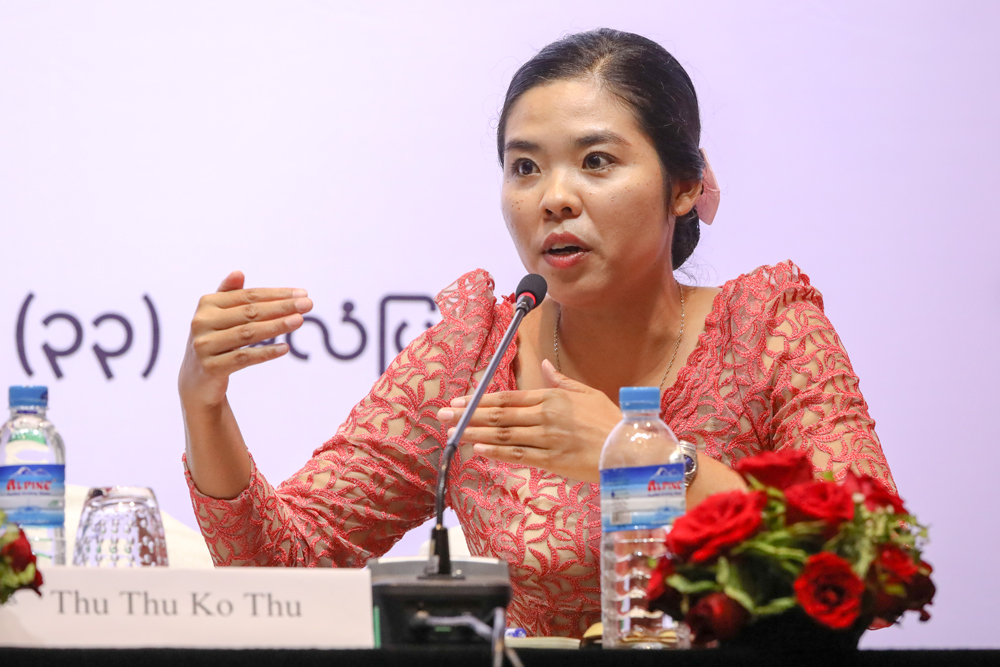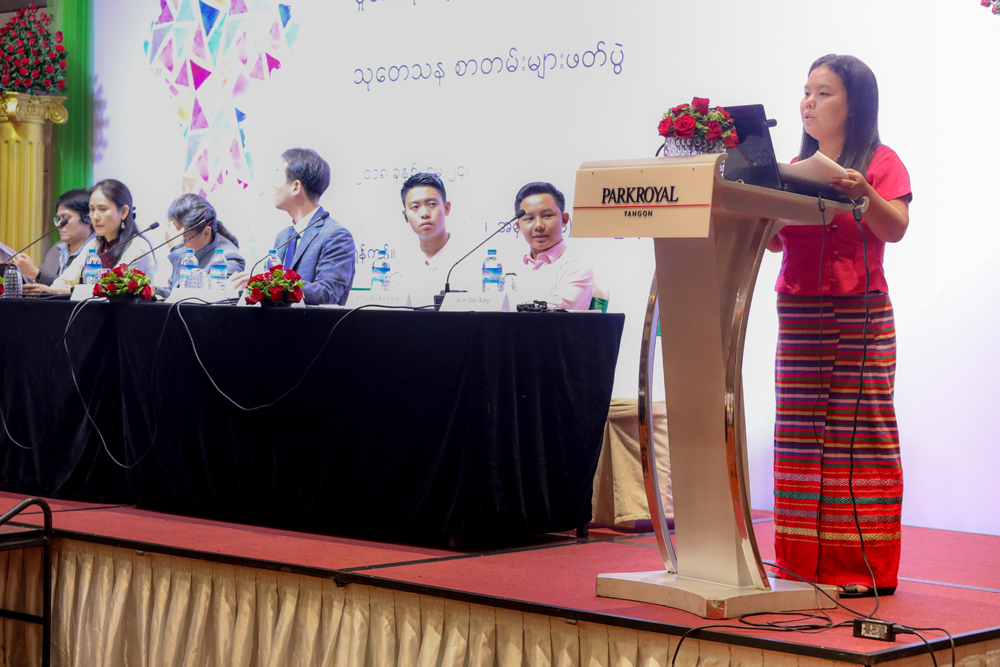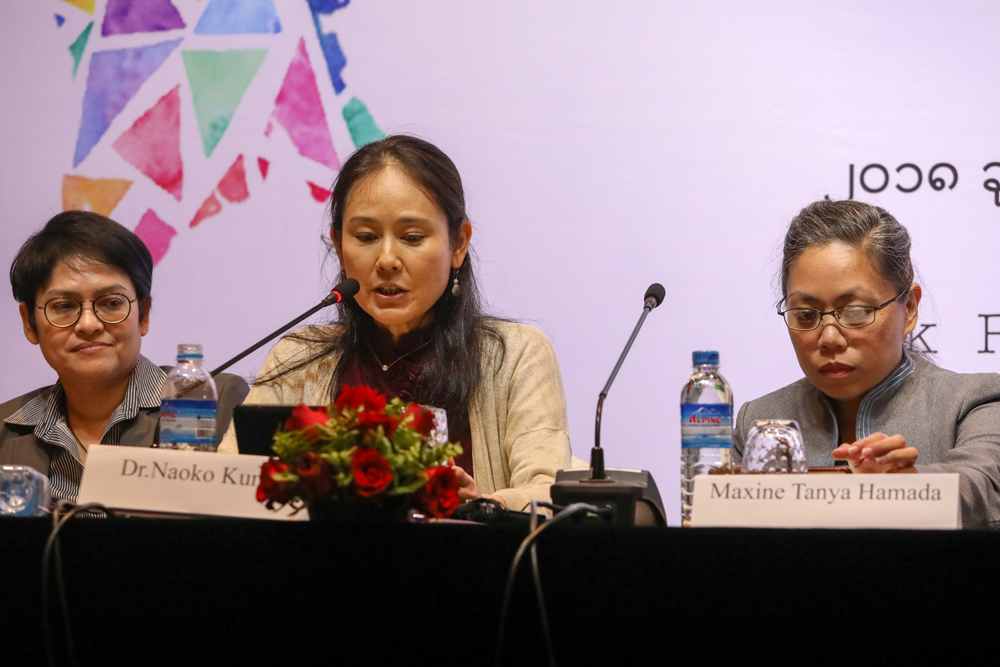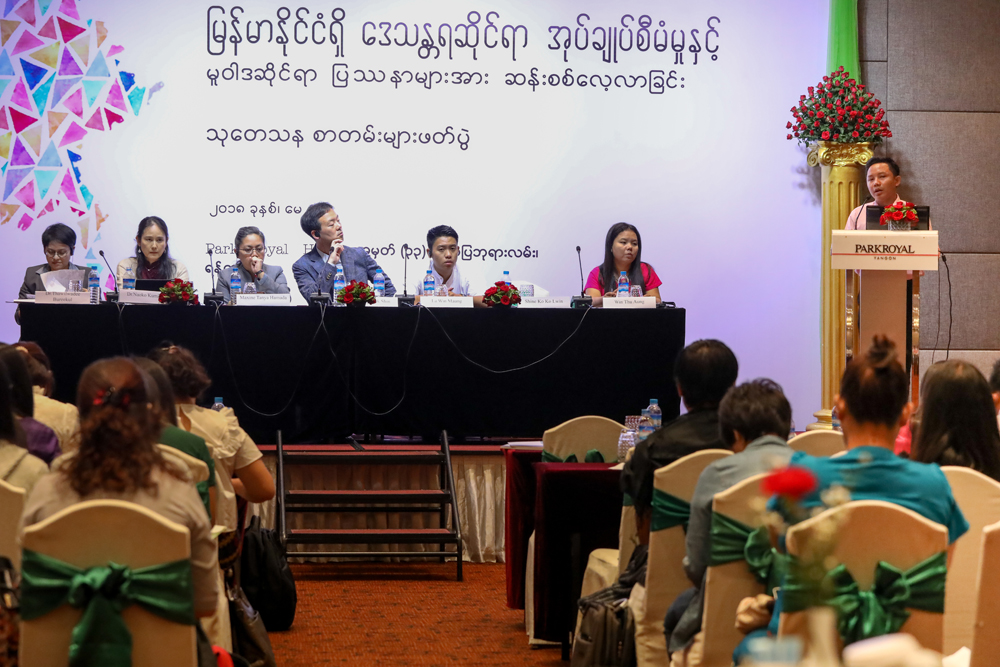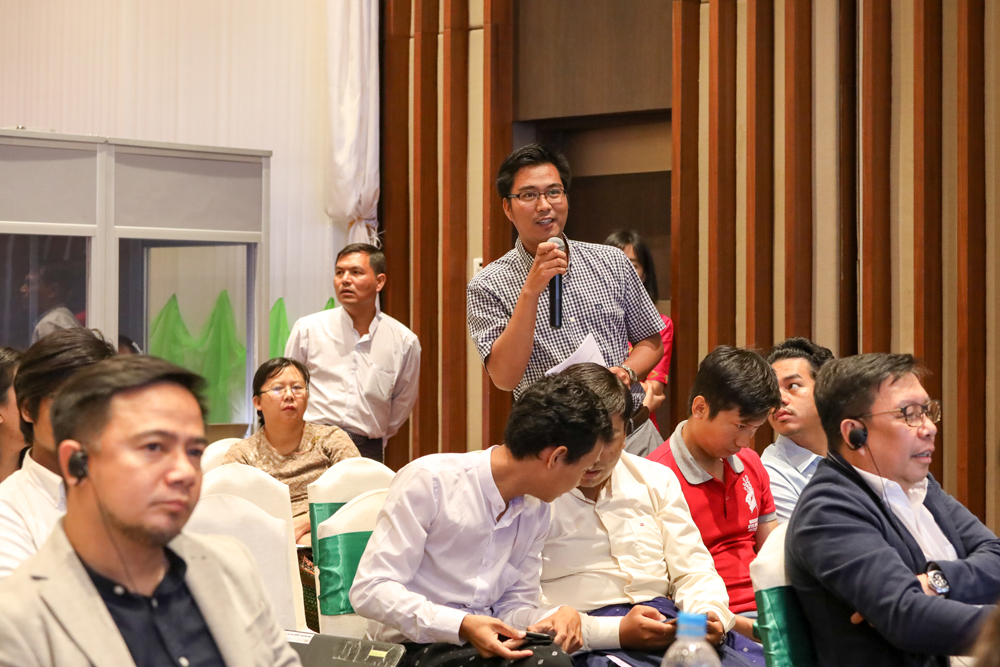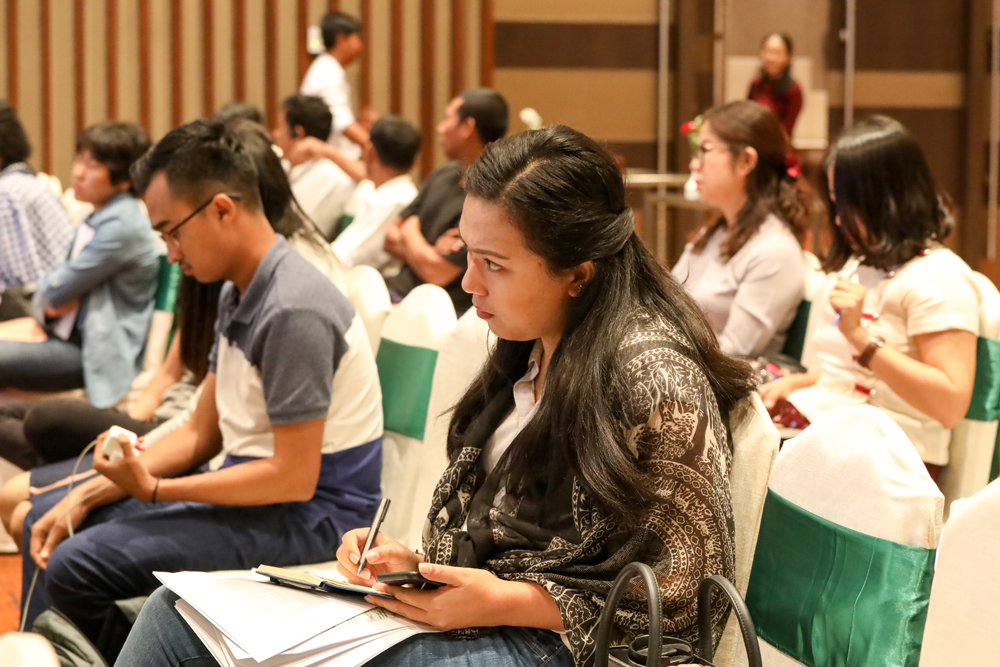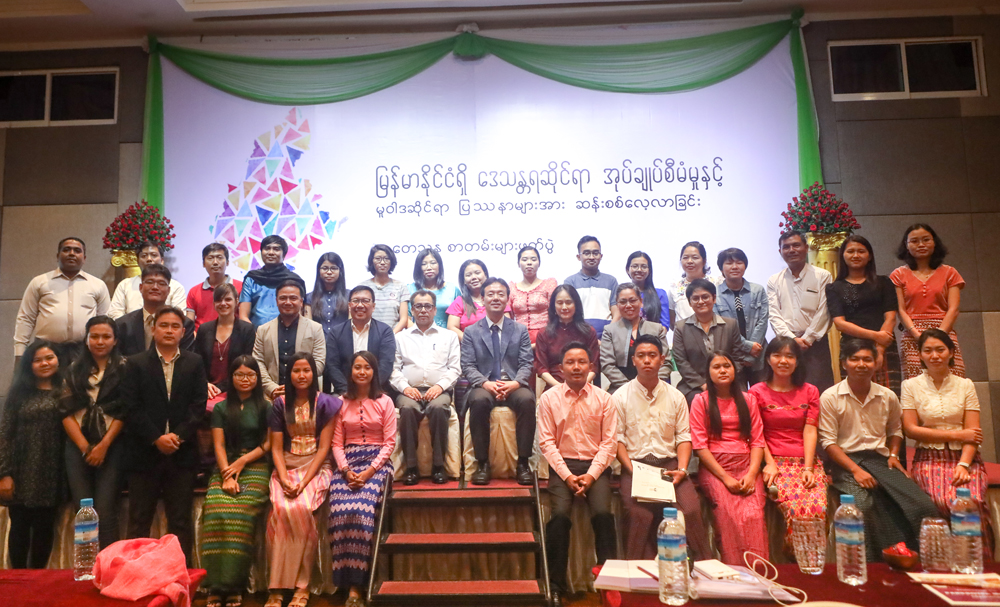행사
동아시아연구원(East Asia Institute: EAI)은 산디거버넌스연구소(Sandhi Governance Institute: SGI)와 함께 미얀마의 민주주의를 진흥하고 거버넌스를 발전시키기 위한 “Empowering Citizens, Improving Governance: Pressing Policy Issues in Myanmar” 국제 컨퍼런스를 개최하였습니다. 본 컨퍼런스는 “미얀마 시민사회 역량 강화”(Strengthening Civil Society Organizations in Myanmar) 프로그램에 참여하고 있는 미얀마의 시민사회 독립 싱크탱크들이 그 동안 수행한 연구의 결과를 발표하고 정책 아이디어를 확산시키기 위한 자리였습니다. 이를 위해 한국, 태국, 인도, 필리핀, 싱가폴 등 아시아 주요 국가의 민주주의 및 거버넌스 전문가들을 초청하여 각국의 경험을 공유하고 미얀마 사회의 발전을 위한 아이디어를 개진하였습니다.
“미얀마 시민사회 역량 강화” 프로그램에는 총 7개 미얀마 민간 싱크탱크가 참여하고 있습니다. 양곤시에 있는 산디거버넌스연구소, 양곤정치학교(Yangon School of Political Science: YSPS), 오픈미얀마이니시어티브(Open Myanmar Initiative: OMI), 살윈정책연구소(Salween Institute for Public Policy: SIPP), 언아더디벨로프먼트(Another Development: AD)를 비롯하여, 만달레이시의 욘치야(Yon Kyi Yar: YKY), 미치나시의 나우셩개발연구소(Naushawng Development Institute: NDI)가 각 기관의 전문 분야 및 경력을 바탕으로 정책 의제를 개발하고 데이터 수집 및 연구를 수행하였습니다. 이를 위해 EAI는 아시아민주주의연구네트워크(Asia Democracy Research Network: ADRN) 국제포럼을 통해 정책 의제 개발을 지원하고, 참여연구방법론(participatory research methodology), 정책분석(policy analysis), 정책제언전략(advocacy strategy) 등을 주제로 한 워크숍을 진행하였습니다.
이번 컨퍼런스에서 참여 기관들은 미얀마 여성인권 강화, 민족적 다양성을 담보하기 위한 연방주의, 의회에 대한 시민사회의 참여, 양곤시 수도 정책, 만달레이시 도서관 정책, 카친 주 차량등록제도, 양곤시 버스 운영 개선 등 미얀마의 민주주의 및 지역 거버넌스 어젠다에 대한 정책 연구 결과를 발표하고 외부 전문가의 아이디어를 경청하였습니다. 미얀마의 민간사회단체 활동가와 정책 전문가를 비롯하여 거버넌스 연구자와 언론인들이 참석하여 본 행사에 대한 관심을 피력하였습니다. 이번 컨퍼런스는 미얀마의 지역 매체에 소개되기도 했습니다.
EAI는 “미얀마 시민사회 역량 강화” 프로그램을 통해서 미얀마 민간 싱크탱크의 조직 및 연구 역량 강화를 지원하고 민주주의의 발전과 공고화를 위한 아시아 지역의 민간 네트워크 발전을 위해 노력하고 있습니다. 본 프로그램은 미국의 민주주의진흥재단(National Endowment for Democracy)이 지원합니다.
프로그램
| 09:40-10:00 | Welcoming Remarks
Myo Aung Htwe, Yangon School of Political Science, Myanmar Young Hwan Shin, East Asia Institute, South Korea (on behalf of EAI President Sook Jong Lee) |
| 10:00-12:00 | Session 1. Citizen Empowerment |
| Moderator Jae Hyeok Shin, Korea University, South Korea |
|
|
Presenters La Win Maung, Open Myanmar Initiative, Myanmar |
|
|
Discussants |
| 12:00-13:30 | Lunch |
| 13:30-15:00 | Session 2. Local Public Administration |
| Moderator Saw Kapi, Salween Institute for Public Policy, Myanmar |
|
|
Presenters |
|
|
Discussants |
| 15:00-15:30 | Tea Break |
| 15:30- 17:00 | Session 3. Transportation Policy |
|
Moderator |
|
|
Presenters |
|
|
Discussants |
해외참가자 소개
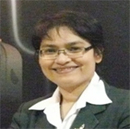 Dr. Thawilwadee Bureekul is the Director of Research and Development Office, King Prajadhipok’s Institute (KPI) where she is involved in the planning, management, implementation, and coordination of the Institute’s research projects. In addition to her role at the KPI, Dr. Bureekul is professor in several universities in Thailand, including the Asian Institute of Technology, Thammasat University, Burapha University, Mahidol University and Silpakorn University. In 2003, she received the outstanding research award in Political Science and Public Administration for her research project on “Development of Indicators for Good Governance” from Thailand Research Council. In 2012, she received the outstanding research award in Sociology Research for her research project on “the Study of Social Capital for Sustainable Community Development: Case Study of Tambon Klongkanan, Pakasai and Talingchan Communities, Amphoe Nue Klong, Krabi Province”. Her research work is mostly related to democratization, good governance, social equality, public participation, public policy and election behavior. She was a former member of the National Reform Council and member of the Constitution Drafting Committee and a former member of the National Reform Steering Assembly where she played an important role in the reformation process of Thailand. She also succeeded in proposing ‘Gender Responsive Budgeting’ in the Thai Constitution and was given the ‘Women of the Year 2017’ award accordingly.
Dr. Thawilwadee Bureekul is the Director of Research and Development Office, King Prajadhipok’s Institute (KPI) where she is involved in the planning, management, implementation, and coordination of the Institute’s research projects. In addition to her role at the KPI, Dr. Bureekul is professor in several universities in Thailand, including the Asian Institute of Technology, Thammasat University, Burapha University, Mahidol University and Silpakorn University. In 2003, she received the outstanding research award in Political Science and Public Administration for her research project on “Development of Indicators for Good Governance” from Thailand Research Council. In 2012, she received the outstanding research award in Sociology Research for her research project on “the Study of Social Capital for Sustainable Community Development: Case Study of Tambon Klongkanan, Pakasai and Talingchan Communities, Amphoe Nue Klong, Krabi Province”. Her research work is mostly related to democratization, good governance, social equality, public participation, public policy and election behavior. She was a former member of the National Reform Council and member of the Constitution Drafting Committee and a former member of the National Reform Steering Assembly where she played an important role in the reformation process of Thailand. She also succeeded in proposing ‘Gender Responsive Budgeting’ in the Thai Constitution and was given the ‘Women of the Year 2017’ award accordingly.
 Mr. Francisco Gentoral is a development practitioner with over 25 years of experience managing large local economic, environmental, and governance projects throughout the Philippines. He currently serves as an Independent Consultant on Local Economic Development and Local Governance. In this role, Francis provides advice, facilitates trainings and conducts evaluation studies on economic zone development, local economic development and local climate change action planning for national and local governments supported by the Local Government Academy and the Institute for Solidarity of Asia. He also lectures on Business Research, Strategic Management and Business Management University of San Agustin, Iloilo City-MBA Program. Francis is a former National Field Director for Government of Canada’s Philippines Local Governance Support Program for Local Economic Development and the Regional Manager for Government of Canada’s Urban Partnerships Program in Southeast Asia.
Mr. Francisco Gentoral is a development practitioner with over 25 years of experience managing large local economic, environmental, and governance projects throughout the Philippines. He currently serves as an Independent Consultant on Local Economic Development and Local Governance. In this role, Francis provides advice, facilitates trainings and conducts evaluation studies on economic zone development, local economic development and local climate change action planning for national and local governments supported by the Local Government Academy and the Institute for Solidarity of Asia. He also lectures on Business Research, Strategic Management and Business Management University of San Agustin, Iloilo City-MBA Program. Francis is a former National Field Director for Government of Canada’s Philippines Local Governance Support Program for Local Economic Development and the Regional Manager for Government of Canada’s Urban Partnerships Program in Southeast Asia.
 Dr. Naoko Kumada (Nu Nu Lwin)’s main research focus is in Myanmar and Southeast Asia.
Dr. Naoko Kumada (Nu Nu Lwin)’s main research focus is in Myanmar and Southeast Asia.
Her doctoral dissertation on Myanmar society, religion and economy in the context of daily life and practice was one of the first anthropological studies by a foreign scholar to build on long-term fieldwork in rural Burma and to rely on fluency in the Burmese language. She has worked on migrant community and immigration issues of the Myanmar community in Japan and of the Latino community in the US. After the opening of Myanmar she spent time as a policy advisor with the Myanmar government on urbanization. She has also monitored government policy in Myanmar with a view to its regional implications in the newly emerging geopolitical environment.
 Dr. Kaustuv Kanti Bandyopadhyay is the Director of Participatory Research in Asia (PRIA). He is an accomplished researcher and capacity building practitioner on local governance, citizen participation, social accountability and civil society development. He has three decades of professional experience with university, research institution and CSOs. He is serving on the Steering Committee of Asia Democracy Research Networks (ADRN) and Asia Democracy Network (ADN). He has also served as the Global Coordinator and Executive Member of LogoLink – a global network on citizen participation and local governance. He has managed the Global Secretariat of International Forum on Capacity Building (IFCB) from 1998 to 2002. He has travelled and worked extensively in more than 30 countries in the world. He has authored a number of articles, manuals, books, and publications, which contributed to knowledge building on participatory urban governance, civil society, and democracy in Asia. He holds a Ph. D degree in Anthropology for his work with Parhaiya tribes of Chotanagpur in India.
Dr. Kaustuv Kanti Bandyopadhyay is the Director of Participatory Research in Asia (PRIA). He is an accomplished researcher and capacity building practitioner on local governance, citizen participation, social accountability and civil society development. He has three decades of professional experience with university, research institution and CSOs. He is serving on the Steering Committee of Asia Democracy Research Networks (ADRN) and Asia Democracy Network (ADN). He has also served as the Global Coordinator and Executive Member of LogoLink – a global network on citizen participation and local governance. He has managed the Global Secretariat of International Forum on Capacity Building (IFCB) from 1998 to 2002. He has travelled and worked extensively in more than 30 countries in the world. He has authored a number of articles, manuals, books, and publications, which contributed to knowledge building on participatory urban governance, civil society, and democracy in Asia. He holds a Ph. D degree in Anthropology for his work with Parhaiya tribes of Chotanagpur in India.
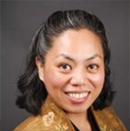 Ms. Maxine Tanya Hamada served most recently as the executive director of iLEAD. She is currently a member of the steering committee of the World Movement for Democracy. Previously, she was assistant secretary for monitoring and evaluation in the Philippines’ Department of Budget and Management (2014–2016), where she helped set up a national evaluation policy for the bureaucracy, oversaw the Grassroots Planning and Budgeting Program and relations with civil society, and assisted in the Open Government Partnership and the Cabinet Cluster on Good Governance. In recognition of her civic work, she was invited in 2011 to participate in the U.S. Department of State’s 100-Years-100-Women International Visitor Leadership Program.
Ms. Maxine Tanya Hamada served most recently as the executive director of iLEAD. She is currently a member of the steering committee of the World Movement for Democracy. Previously, she was assistant secretary for monitoring and evaluation in the Philippines’ Department of Budget and Management (2014–2016), where she helped set up a national evaluation policy for the bureaucracy, oversaw the Grassroots Planning and Budgeting Program and relations with civil society, and assisted in the Open Government Partnership and the Cabinet Cluster on Good Governance. In recognition of her civic work, she was invited in 2011 to participate in the U.S. Department of State’s 100-Years-100-Women International Visitor Leadership Program.
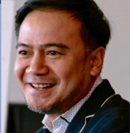 Mr. Ryan Patrick Garcia-Evangelista has nearly 20 years of professional experience as a chamber of commerce executive, economic development, trade policy and business enabling environment specialist and institutional strengthening consultant. He currently serves as regional project coordinator of Center for International Private Enterprise (CIPE) managing projects in areas such as capacity development for economic think tanks in Southeast Asia, anti-corruption and good governance. He also serves as business-enabling environment and investment promotion expert of Strengthening Urban Resilience for Growth with Equity (SURGE) Project of USAID/Philippines, benchmarking and institutional strengthening consultant of the United Nations International Trade Centre (ITC-WTO-UNCTAD), associate governance fellow of the Institute for Solidarity in Asia (ISA), chairperson of the corporate governance committee of the Philippine Chamber of Commerce and Industry (PCCI) and steering committee member of the Free Enterprise and Democracy Network (FEDN). He obtained his Master of Arts in International Relations from the Fletcher School of Law and Diplomacy-Tufts University, in Boston, Massachusetts, U.S.A and his Bachelor of Science in Business in Economics from De La Salle University-Dasmarinas Philippines. He also completed his academic credentials for a Master of Arts in Development Policy at De La Salle University-Manila.
Mr. Ryan Patrick Garcia-Evangelista has nearly 20 years of professional experience as a chamber of commerce executive, economic development, trade policy and business enabling environment specialist and institutional strengthening consultant. He currently serves as regional project coordinator of Center for International Private Enterprise (CIPE) managing projects in areas such as capacity development for economic think tanks in Southeast Asia, anti-corruption and good governance. He also serves as business-enabling environment and investment promotion expert of Strengthening Urban Resilience for Growth with Equity (SURGE) Project of USAID/Philippines, benchmarking and institutional strengthening consultant of the United Nations International Trade Centre (ITC-WTO-UNCTAD), associate governance fellow of the Institute for Solidarity in Asia (ISA), chairperson of the corporate governance committee of the Philippine Chamber of Commerce and Industry (PCCI) and steering committee member of the Free Enterprise and Democracy Network (FEDN). He obtained his Master of Arts in International Relations from the Fletcher School of Law and Diplomacy-Tufts University, in Boston, Massachusetts, U.S.A and his Bachelor of Science in Business in Economics from De La Salle University-Dasmarinas Philippines. He also completed his academic credentials for a Master of Arts in Development Policy at De La Salle University-Manila.
 Dr. Jae Hyeok Shin is an Associate Professor of Political Science & International Relations at Korea University. He teaches courses in political institutions, quantitative methods, and Southeast Asian politics. He also serves as the Director of the Center for Southeast Asian Political Studies (CSEAPS) and Director of the Korea-Asia Center for Development & Cooperation (KACDC). He received his Ph.D. in political science from University of California, Los Angeles in 2011. His research interests include electoral systems, parties, legislative politics, and political & economic development in new democracies especially in East and Southeast Asia. His works have appeared in journals including Party Politics, Political Science Quarterly, Government & Opposition, Democratization, and the Journal of East Asian Studies.
Dr. Jae Hyeok Shin is an Associate Professor of Political Science & International Relations at Korea University. He teaches courses in political institutions, quantitative methods, and Southeast Asian politics. He also serves as the Director of the Center for Southeast Asian Political Studies (CSEAPS) and Director of the Korea-Asia Center for Development & Cooperation (KACDC). He received his Ph.D. in political science from University of California, Los Angeles in 2011. His research interests include electoral systems, parties, legislative politics, and political & economic development in new democracies especially in East and Southeast Asia. His works have appeared in journals including Party Politics, Political Science Quarterly, Government & Opposition, Democratization, and the Journal of East Asian Studies.
